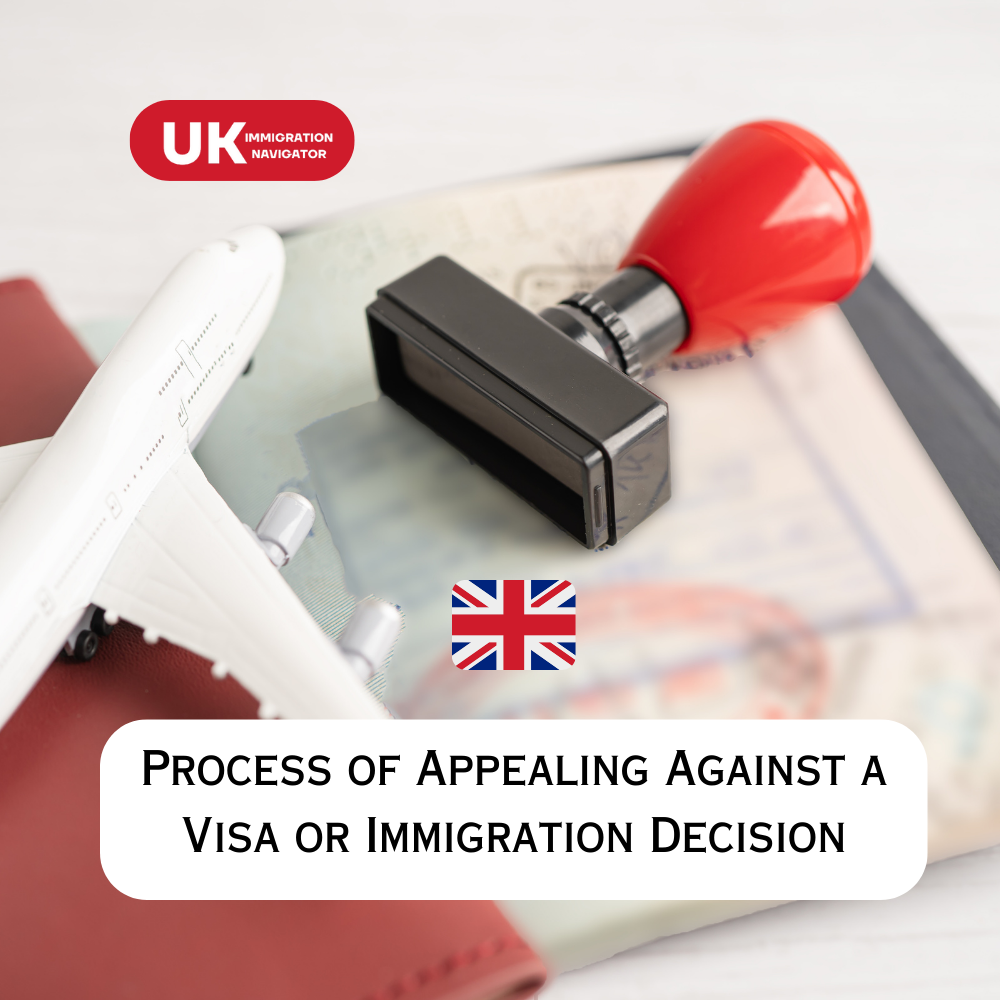Navigating and Understanding the Process of Appealing Against a Visa or Immigration Decision, and sometimes decisions made by immigration authorities may not align with your expectations. In such cases, understanding how to appeal against a decision becomes crucial. This article aims to guide individuals through the process of appealing against a visa or immigration decision, ensuring a comprehensive understanding of the steps involved.
Table of Contents
Understanding the Process of Appealing Against a Visa or Immigration Decision
Upon receiving a decision letter from immigration authorities, it’s essential to carefully review the contents to understand the reasons behind the decision. This step is crucial as it forms the basis of your appeal. Identify specific grounds mentioned in the letter that you believe are incorrect or unjust.
LOOKING JOB IN TOP COUNTRIES VISIT THIS WEBSITE: CLICK HERE
Gathering Evidence
The success of your appeal heavily relies on the strength of the evidence you present. Collect relevant documents, such as employment records, financial statements, or letters of support, to support your case. Ensure that the evidence is factual, and relevant, and directly addresses the issues raised in the decision letter.
READ ALSO: Right to work code in the UK
Completing the Appeal Form
Familiarize yourself with the appeal process outlined by the immigration authorities. Fill out the necessary appeal forms accurately, providing all requested information. Be thorough in your responses and ensure that no details are overlooked. Any errors or inconsistencies in the appeal form could potentially jeopardize your case.
Seeking Legal Advice
Consider seeking professional legal advice from an immigration lawyer experienced in handling appeals. They can provide valuable insights into the strength of your case, advise you on the best course of action, and represent you during the appeal process. While legal representation is not mandatory, it can significantly increase your chances of a successful appeal.
Submitting the Appeal
Adhere to the timelines and deadlines specified by the immigration authorities for submitting your appeal. Double-check that all required documents are included and that the appeal form is filled out correctly. Failure to meet deadlines or provide essential information may delay or reject your appeal.
Where to send your application
Send your reasons for the urgent appeal and evidence to the tribunal.
Expedite Requests The First-tier Tribunal
Office of the Duty Judge
First-tier Tribunal (Immigration and Asylum Chamber)
PO Box 6987
Leicester LE1 6ZX
Contact the tribunal to check if your application has been received.
Expedite Requests The First-Tier Tribunal
customer.service@justice.gov.uk
Fax: 0870 739 5895
Attending the Hearing
If your appeal proceeds to a hearing, prepare thoroughly by reviewing your case and gathering any additional evidence or witnesses. During the hearing, remain composed and follow the instructions provided by the presiding officer. Be prepared to answer questions and present your case confidently.
Receiving the Decision
Following the hearing, you will receive a decision from the immigration tribunal. This decision may uphold the original decision, overturn it in your favor, or provide further instructions. Regardless of the outcome, carefully review the decision letter and consult your legal representative, if applicable, to understand the next steps.
Conclusion
Appealing against a visa or immigration decision can be a daunting process, but with proper preparation and understanding of the steps involved, individuals can effectively navigate through it. By gathering strong evidence, seeking legal advice, and following the prescribed procedures, you can increase your chances of a favorable outcome.
FAQs
- What are the common reasons for visa or immigration refusals? Visa or immigration refusals can occur for various reasons, including incomplete documentation, failure to meet eligibility criteria, discrepancies in information provided, or concerns regarding security or health issues.
- Can I appeal against any decision regarding my visa or immigration status? While not all decisions may be eligible for appeal, many visa and immigration decisions can be challenged through the appeals process, provided there are valid grounds for appeal.
- How long does the appeal process usually take? The duration of the appeal process can vary depending on various factors, including the complexity of the case, the backlog of appeals at the immigration tribunal, and whether a hearing is required. In general, the process may take several months to resolve.
- Is it necessary to hire a lawyer for the appeal? While legal representation is not mandatory, seeking advice from an experienced immigration lawyer can significantly enhance your chances of success. They can provide expert guidance, assess the strength of your case, and represent you effectively during the appeal process.
- What happens if my appeal is unsuccessful? If your appeal is unsuccessful, you may explore alternative options, such as reapplying for a visa or seeking judicial review. Consulting with your legal representative can help you determine the best course of action based on your circumstances.



